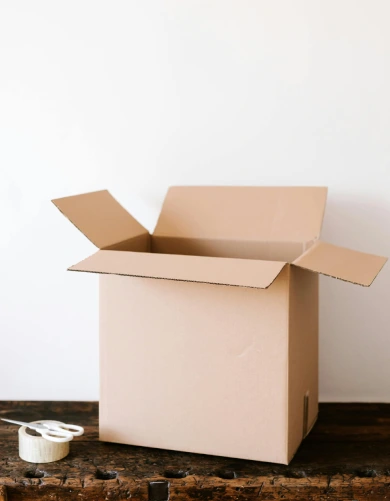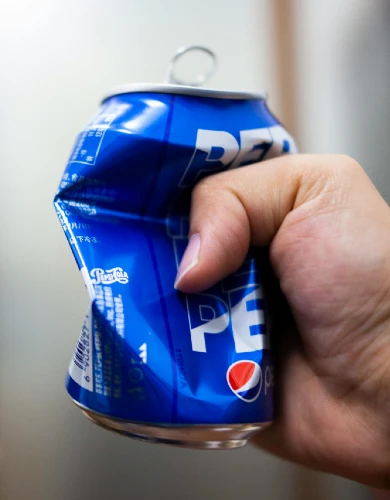Commercial waste contracts
Commercial waste contracts typically do not include a ‘cooling-off’ period, so understanding the key terms is crucial. Our business waste experts have highlighted the five most important points when reviewing a commercial waste contract.
💡We’ve also published a quick reference guide to commercial waste contract terms.
Top five things to consider before entering a commercial waste contract
- Getting the right contract length – Exit fees on commercial waste contracts can be very expensive. Carefully consider the future waste needs of your business and consider choosing a shorter fixed-term contract.
- Make sure your waste is accessible – If your waste bins are not accessible during the entirety of each working day, make sure you agree to specific times for collection upfront to avoid rescheduled collection charges.
- Avoid overweight charges – A waste provider will charge you if you repeatedly overfill your bins. Carefully estimate the number of bins you need at the start of the contract.
- Avoid contaminated waste charges – If your provider is unable to process your commercial recycling due to contamination, you will incur additional charges. Ensure you have the training and procedures in place to avoid contamination charges.
- Choose the right waste categories – A waste contract will specify precisely each type of waste that is being collected. Assess your business waste streams in advance to benefit from the lower costs associated with separate recycling collections.
💡To understand all the different fees and charges involved in commercial waste contracts, visit our commercial waste collection costs page.
Early exit fees
Commercial waste contracts typically last for an initial fixed period of one to three years.
These contracts will include an ‘early exit’ provision that specifies the amount your business must pay if you cancel your waste contract prematurely.
You will need to pay an early exit fee even if you move out of your current address.
Early exit fees in commercial waste contracts can be very expensive—either a set percentage of all remaining charges or a specified number of months’ charges.
We recommend carefully considering the duration your business requires. A shorter contract, though potentially more expensive per month, will provide greater flexibility should the circumstances of your business change.
Missed collection policy
As part of the sign-up process for a commercial waste contract, you will be asked:
- If there are any access restrictions for getting a bin lorry to your business (such as narrow lanes).
- If there are any hours during the working day when access will not be possible.
Agreeing on these details upfront with your commercial waste provider is important. If your collection provider misses a pick-up because they cannot access your bins and need to reschedule, you will be liable to pay for this additional collection.
Overweight collection policy
In a commercial waste contract, you will agree upfront on the number of waste bins your provider will supply and the frequency with which these will be emptied.
A commercial waste contract will specify a maximum weight for each bin. The maximum weight will be calculated based upon your selected bin size based upon and your waste classification.
Each time your commercial waste provider collects your waste, the contents of each container will be weighed to check the bins are not overweight.
Your waste contract will define how much additional you must pay if you exceed the agreed weight. The overweight charge will usually be a specific rate per kilogram of additional waste.
💡The best commercial waste contracts include a “fair use” policy where your provider may waive overweight collection fees if this happens only occasionally.
We recommend reviewing the number bin bags of waste your business typically produces and carefully selecting a commercial waste bin size that has ample room to store this waste between your collections. Here’s the number of bags a typical commercial waste bin will hold:
| Bin type | Bin size | Number of bin bags | Dimension (H,W,D) |
|---|---|---|---|
| Standard wheelie bin | 240 litres | 2 | 1.1m x 0.6m x 0.7m |
| Standard commercial wheelie bin | 660 litres | 8 | 1.3m x 0.7m x 1.3m |
| Large commercial wheelie bin | 1,100 litres | 12 | 1.4m x 1.0m x 1.3m |
| Standard front-end loader | 6,100 litres | 72 | 2.0m x 2.2m x 2.1m |
If your business starts regularly incurring overweight charges, we recommend contacting your provider and arranging for an additional bin to be added to your contract.
Contaminated waste policy
Contaminated waste fees are among the most common additional charges businesses incur in addition to their agreed monthly waste collection fees.
Commercial glass recycling and commercial cardboard recycling are the least expensive waste collections because the materials are valuable commodities that can easily be recycled into new products.
However, if your cardboard waste bin includes a greasy pizza box, the contents of the entire bin become worthless and will likely be disposed of in a landfill or an incinerator.
Redirecting contaminated waste incurs additional logistical costs for your provider and exposes them to further expenses such as the landfill tax.
A commercial waste contract typically states that your business will be charged an additional fee for all costs associated with waste contamination.
Choose the right waste categories
A commercial waste contract will classify the types of commercial recycling and waste that will be collected. Each type will have separate waste bins and a specified collection frequency.
The contract will refer to a six-figure EWC (European Waste Catalogue) code for each type. Here are the most common waste categories:
- 200301 – Mixed Municipal waste: General business waste that ends up in landfills/incinerators.
- 200102 – Glass: Commercial glass recycling
- 200108 – Biodegradable kitchen and canteen waste: Commercial food waste
- 200101 – Paper and cardboard: Commercial cardboard recycling.
- 150106 – Mixed packaging: Commercial dry mixed recycling.
It’s important to note that commercial waste collection costs are significantly lower if you segregate your business waste into recyclables and non-recyclables.
We recommend conducting a commercial waste audit to determine which recycling collections your business could utilise to reduce your general business waste charges.
💡There is a comprehensive list of hazardous waste categories that are industry-specific. We recommend using Veolia‘s: List of Wastes as the best resource for the full list of waste classifications.
Commercial waste contract terms
Here’s our quick reference guide to the different terms included within a commercial waste contract:
- Business name/registration number – The legal name of your business or organisation.
- Supply address – The address where your commercial waste bins are located. Typically, you will need a separate commercial waste contract for each address.
- Payment method – Most commercial waste contracts for small businesses specify payment by direct debit. Your waste provider will typically ask for your direct debit details as part of the sign-up process.
- Contract length – The number of months you are agreeing for your waste to be collected. See more information on potential early exit fees above.
- Waste service(s) – A waste contract will specify the different waste types. See more above of types of business waste collections.
- Frequency of collection – How often your provider will conduct a commercial waste collection to empty your bins for each type of waste in your contract.
- Commercial waste container type and size – A commercial waste collection provider will lease your business its waste bins for the entirety of your commercial waste contract. The contract will state the size of these bins. Review our complete guide to commercial waste bins for more information.
- Number of commercial waste bins – The number of waste bins you’ll be provided for each type of waste and recycling in your contract.
- Maximum weight per container – Depending on your commercial waste bin size, your provider will define a maximum weight for each container. This weight is used to determine overweight charges if you overfill your bins.
- Credit check details – Most commercial waste providers will conduct a credit check as a precondition to agreeing to a commercial waste contract. This check will typically ask what sector your business operates in.
- Waste transfer note – A commercial waste contract will define how you will receive your waste transfer note and how often you’ll need to sign this.

